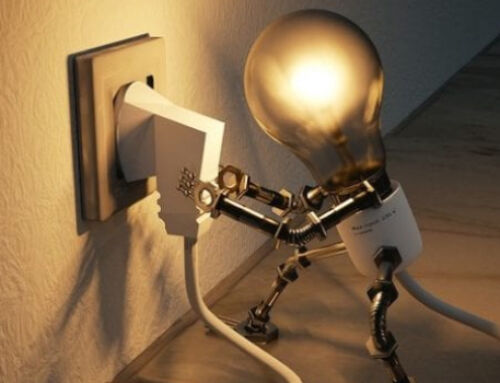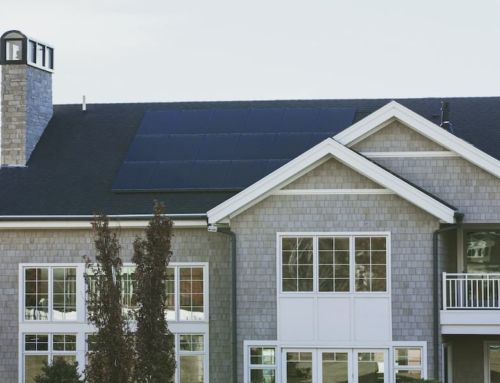Building a new home is an exciting and significant undertaking, and it requires careful planning, coordination, and execution.
One of the critical aspects of new home construction is electrical work, which involves installing and connecting all the electrical components, circuits, and systems that power your home.
Electrical work is not only essential for your home’s functionality and comfort, but it’s also crucial for your safety and the safety of your family and property.
In Sydney, new home construction electrical work must comply with the local codes and standards set by the New South Wales government. These regulations ensure that your electrical system meets the minimum safety requirements and prevents electrical hazards, such as electrical fires, electrocution, and property damage.
Therefore, it’s crucial to hire a licensed and experienced electrician who understands the local regulations and best practices and can install your electrical system correctly and safely.
This article provides a comprehensive new home construction electrical checklist for Sydney homeowners and builders. The checklist covers all the essential aspects of electrical work, from determining your power needs to testing and maintaining your electrical system.
By following this checklist, you can ensure that your new home’s electrical system is installed correctly, efficiently, and safely and meets your needs and preferences.
New Home Construction Electrical Checklist
Hire a licensed electrician
The first and most crucial step in any electrical work is to hire a licensed professional.
In Sydney, electricians are required to hold a licence from the New South Wales Department of Fair Trading to perform electrical work legally. A licensed service provider has the expertise and knowledge to install electrical systems safely and according to the regulations.
Determine your power needs
The amount of power your home needs depends on its size, the number of occupants, and the electrical appliances you plan to use.
You need to calculate your power needs to determine the size of your electrical service and panel. A residential electrician can help you calculate your power needs and recommend the appropriate service and panel size.
Plan your home electrical layout
Before starting any electrical work, you need to plan the electrical layout of your home.
Planning an electrical layout includes determining the location of outlets, switches, and light fixtures. You should also plan the wiring and circuit layout to avoid overloading circuits and to ensure adequate power supply to each area of your home.
Install smoke detectors
Smoke detectors are crucial for the safety of your home and its occupants. In Sydney, smoke detectors are mandatory in all residential buildings. You should install smoke detectors in every bedroom, outside each sleeping area, and on every level of your home.
Install safety switches
Safety switches, also known as residual current devices (RCDs), are designed to protect your home and its occupants from electrical shock.
These crucial inclusions help detect faults in the electrical system and quickly switch off the power supply, preventing injury or death. In Sydney, safety switches are mandatory in all new homes and for any electrical work performed in existing homes – making it crucial you have a residential electrical installation team you can trust.
Install surge protection
Power surges can damage your electrical appliances and equipment. Installing surge protection devices can prevent this damage and extend the life of your electrical devices. You should install surge protection devices at the main switchboard and for each electrical circuit.
Choose energy-efficient lighting
Lighting can account for a significant portion of your home’s energy consumption. Electrical planning for the house can include choosing energy-efficient lighting can reduce your energy bills and environmental impact. LED lighting is an excellent choice for energy-efficient lighting and can last up to 25 times longer than traditional incandescent bulbs.
Consider home automation
Home automation allows you to control your electrical systems remotely and can improve your home’s energy efficiency and security. You can control your lighting, heating and cooling, and security systems from your smartphone or tablet.
Discuss your home automation options with your electrician to find the best solution for your home.
Install GFCI Outlets
Ground fault circuit interrupter (GFCI) outlets are crucial safety features in any home. They are designed to protect you from electrical shocks and prevent electrical fires.
In Sydney, GFCI outlets are mandatory in all wet locations, such as bathrooms, kitchens, laundry rooms, and outdoor areas. Installing GFCI outlets in these areas can ensure the safety of you and your family.
Use Electrical Cables with Appropriate Gauge and Ampacity
Choosing the right gauge and ampacity of electrical cables is essential for the safety and efficiency of your electrical system.
The gauge of the cable determines its thickness, and the ampacity determines the amount of current the cable can safely carry. Using cables with the appropriate gauge and ampacity can prevent electrical hazards and ensure that your electrical system works correctly.
Install Adequate Electrical Panels and Service
The electrical service and panel are the backbone of your electrical system. They supply electricity to your home and distribute it to the various circuits.
Installing an adequate electrical panel and service is crucial to ensure that your electrical system can handle your power needs safely and efficiently. Your electrician can help you determine the right size and capacity for your electrical service and panel.
Use Electrical Tape and Connectors Properly
Using electrical tape and connectors properly is essential to ensure the safety and reliability of your electrical system.
Electrical tape is used to insulate wires and prevent electrical contact, while connectors are used to join wires together. Using high-quality electrical tape and connectors and following the manufacturer’s instructions can prevent electrical hazards and ensure the proper functioning of your electrical system.
Install Electrical Outlets in Convenient Locations
Electrical outlets are essential features in any home. They provide power for your electrical devices and appliances, such as televisions, computers, and refrigerators. Installing electrical outlets in convenient locations can make your life more comfortable and efficient.
You should install outlets near your bed, couch, desk, and other areas where you plan to use electrical devices.
Install Ceiling Fans and Ventilation Fans
Ceiling fans and ventilation fans are crucial features in any home. Ceiling fans can circulate air and reduce your reliance on air conditioning, while ventilation fans can remove moisture and odours from your bathroom and kitchen.
Installing ceiling fans and ventilation fans can improve your comfort and indoor air quality and reduce your energy bills.
Install Exterior Lighting and Security Systems
Exterior lighting and security systems can improve the safety and security of your home.
Exterior lighting can deter intruders and make it easier for you to navigate your property at night, while security systems can detect intruders and alert you and the authorities. Installing exterior lighting and security systems can provide peace of mind and protect your home and family.
Test and Maintain Your Electrical System
Testing and maintaining your electrical system is crucial to ensure its safety and reliability.
You should have your electrical system tested by a licensed electrician regularly and perform routine maintenance, such as cleaning and inspecting your electrical panels, outlets, and wiring. This can prevent electrical hazards and ensure the proper functioning of your electrical system.
Bookmark this Electrical Planning Checklist
Building a new home in Sydney requires careful planning and attention to detail, especially when it comes to electrical work.
Following this comprehensive electrical checklist can help you ensure your electrical system meets the local regulations and standards and is installed correctly and safely.
Hire a local licensed electrician to ensure you have completed the following checklist:
- Determine your power needs
- Plan your electrical layout
- Install smoke detectors
- Install safety switches
- Install surge protectors
- Choose energy-efficient lighting
- Consider home automation
- Install GFCI outlets
- Use electrical cables with appropriate gauge and ampacity
- Install adequate electrical panels and service
- Use electrical tape and connectors properly
- Install outlets in convenient locations
- Install ceiling fans and ventilation fans
- Test and maintain your electrical system
By ticking items off this checklist, you can enjoy a safe, efficient, and comfortable home that meets your needs and preferences.
Keep cool with air conditioning from HunterCON
Every HunterCON-installed air con comes with a 5-year warranty on the installation in addition to manufacturer-provided warranties on the units themselves. This can give you extra peace of mind that you’ll have a reliable unit in place for years to come.
With over 10 years of experience helping homeowners and businesses across Sydney with their air conditioning needs, there’s no problem or question we haven’t encountered and learned how to solve and answer quickly and confidently.
For help with your aircon or to learn more about HunterCON’s service offerings, feel free to call us on 02 8283 1105 or request a fast and FREE quote online today!


![New Home Construction Electrical Checklist [Sydney Edition] 1 5 Things to Know About Electrics When Building a New Home - New Home Construction Electrical Checklist [Sydney Edition]](https://hunterconair.com.au/wp-content/uploads/2018/11/5-Things-to-Know-About-Electrics-When-Building-a-New-Home.jpg.webp)



